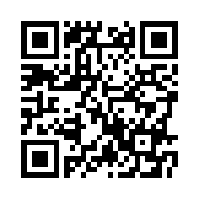Abstract
The South African educational system is in a crisis. This situation places huge demands on school principals and school management teams, and raises many theoretical and empirical questions. Transformational leadership is needed to deal with these challenges and complexities. Not all school leaders show the same level of transformational leadership. Some leaders conform more to other leadership styles. The aim of this article is to explore the relation between spiritual character traits and leadership styles from a theoretical and empirical perspective. The theoretical part focuses on the conceptualisation of leadership (styles) and spirituality. The empirical research consists of a web-based survey conducted in some private and religiously affiliated schools in South Africa in 2011–2012. The Multifactor Leadership Questionnaire (MLQ) and Cloninger’s shortened Temperament and Character Inventory (TCI-140) were used to measure leadership styles and spiritual traits respectively. Statistical procedures included confirmatory factor analysis, correlation (Pearson rho) and regression analysis. Key findings are that leaders of private schools in South Africa mostly conform to a transformative leadership style, disagree with corrective leadership and strongly disagree with passive-avoidant leadership. Regarding the spiritual character traits they agree with self-transcendence and strongly agree with self-directedness. Spiritual character traits are strong predictors for transformational and passive-avoidant leadership. Higher levels of self-transcendence and self-directedness are strong predictors for transformational leadership. Our research suggests that traditional religious variables are less important as predictors of leadership style than spiritual character traits.Copyright information
- Ownership of copyright in terms of the Work remains with the authors.
- The authors retain the non-exclusive right to do anything they wish with the Work, provided attribution is given to the place and detail of original publication, as set out in the official citation of the Work published in the journal. The retained right specifically includes the right to post the Work on the authors’ or their institutions’ websites or institutional repositories.
Publication and user license
- The authors grant the title owner and the publisher an irrevocable license and first right and perpetual subsequent right to (a) publish, reproduce, distribute, display and store the Work in any form/medium, (b) to translate the Work into other languages, create adaptations, summaries or extracts of the Work or other derivative works based on the Work and exercise all of the rights set forth in (a) above in such translations, adaptations, summaries, extracts and derivative works, (c) to license others to do any or all of the above, and (d) to register the Digital Object Identifier (DOI) for the Definitive Work.
- The authors acknowledge and accept the user licence under which the Work will be published as set out in https://creativecommons.org/licenses/by/4.0/ (Creative Commons Attribution License South Africa)
- The undersigned warrant that they have the authority to license these publication rights and that no portion of the copyright to the Work has been assigned or licensed previously to any other party.
Disclaimer: The publisher, editors and title owner accept no responsibility for any statement made or opinion expressed by any other person in this Work. Consequently, they will not be liable for any loss or damage sustained by any reader as a result of his or her action upon any statement or opinion in this Work.
In cases where a manuscript is NOT accepted for publication by the editorial board, the portions of this agreement regarding the publishing licensing shall be null and void and the authors will be free to submit this manuscript to any other publication for first publication.
Our copyright policies are author-friendly and protect the rights of our authors and publishing partners.

